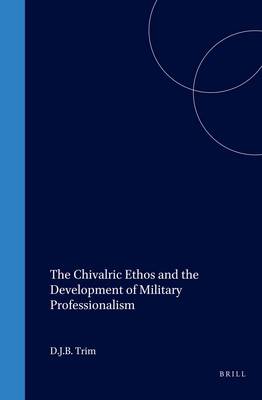
- Afhalen na 1 uur in een winkel met voorraad
- Gratis thuislevering in België vanaf € 30
- Ruim aanbod met 7 miljoen producten
- Afhalen na 1 uur in een winkel met voorraad
- Gratis thuislevering in België vanaf € 30
- Ruim aanbod met 7 miljoen producten
Zoeken
The Chivalric Ethos and the Development of Military Professionalism
€ 352,95
+ 705 punten
Omschrijving
The essays in this volume explore the extent to which the chivalric ethos and military professionalism were incompatible, as well as their relative significance for developments in the art of war, and the rise of the state.
Essays explore the armies and societies of late-medieval and early-modern France, Italy, Portugal, Spain, Germany, England and the Netherlands. They examine both the theory and practice of war, using literary, archival and artistic evidence. Overall the volume probes what constitutes military 'professionalism'; assesses the real long term significance of developments in this period; and considers whether military professionalism required the waning of the chivalric ethos or merely resulted in it.
Analysis of elite culture makes this valuable for historians of culture and politics. Military operations are related to organisations and structures, bridging the gap of military enthusiasts and academic historians.
Essays explore the armies and societies of late-medieval and early-modern France, Italy, Portugal, Spain, Germany, England and the Netherlands. They examine both the theory and practice of war, using literary, archival and artistic evidence. Overall the volume probes what constitutes military 'professionalism'; assesses the real long term significance of developments in this period; and considers whether military professionalism required the waning of the chivalric ethos or merely resulted in it.
Analysis of elite culture makes this valuable for historians of culture and politics. Military operations are related to organisations and structures, bridging the gap of military enthusiasts and academic historians.
Specificaties
Betrokkenen
- Uitgeverij:
Inhoud
- Aantal bladzijden:
- 359
- Taal:
- Engels
- Reeks:
- Reeksnummer:
- nr. 11
Eigenschappen
- Productcode (EAN):
- 9789004120952
- Verschijningsdatum:
- 29/11/2002
- Uitvoering:
- Hardcover
- Formaat:
- Genaaid
- Afmetingen:
- 165 mm x 246 mm
- Gewicht:
- 816 g

Alleen bij Standaard Boekhandel
+ 705 punten op je klantenkaart van Standaard Boekhandel
Beoordelingen
We publiceren alleen reviews die voldoen aan de voorwaarden voor reviews. Bekijk onze voorwaarden voor reviews.







